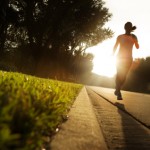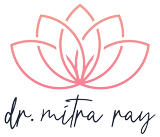As we age, we have this notion that we’re expected to exercise less and slow down. Most of us DO need to  slow our hectic lives down, but not our exercise programs. Cardiovascular exercise is fundamental to keeping your brain active and growing. And your brain is like any other muscle: if you don’t use it, you lose it. Most people think that this means we should exercise our brains by doing crossword puzzles, learning a new language or musical instrument, or playing games like Scrabble. As valuable as these pursuits may be for maintaining brain agility, research indicates another approach: the brain grows through physical movement, and decays with a sedentary lifestyle.
slow our hectic lives down, but not our exercise programs. Cardiovascular exercise is fundamental to keeping your brain active and growing. And your brain is like any other muscle: if you don’t use it, you lose it. Most people think that this means we should exercise our brains by doing crossword puzzles, learning a new language or musical instrument, or playing games like Scrabble. As valuable as these pursuits may be for maintaining brain agility, research indicates another approach: the brain grows through physical movement, and decays with a sedentary lifestyle.
In his book I of the Vortex: From Neurons to Self, neurophysiologist Rodolfo Llinás of New York University discusses that only a mobile creature needs a brain. He uses the example of a sea squirt, which is born as a larva with a three hundred-neuron “brain”, and motors in the shallows until it finds coral that it can call home. Once it sets root in the coral, it eats its brain as a source of nutrition to grow, no longer in need of a brain that can direct its movement. Llinás says, “That which we call thinking is the evolutionary internalization of movement.” For a more in depth read on why we should be inspired to move, I suggest a book called Spark: The Revolutionary New Science of Exercise and the Brain by John J. Ratey, MD. The bottom line is that if you are inspired to do a morning workout, you’ll keep your brain sharp as you age.
Well that’s great, but there is a caveat. Too many people jump on the exercise bandwagon with too much zeal and end up hurt, or sick, or worse. Why? Because exercise can demand more than you have to give. When done right, exercise is supposed to tear down tissue, only to rebuild it stronger. This requires lots of energy and resources for the body. Moreover, during exercise, free- radicals are generated, which steal electrons from fundamental molecules in the body such as your DNA, protein, and fat molecules. This causes damage to cells, tissues, and organs, and leads to disease.
The way to combat this problem is through a diet of whole-food nutrition from the plant kingdom, rich in antioxidants that can reduce the free radical damage to the body, especially after exercise. And research shows that using Juice Plus® and Juice Plus Complete® will go a long way toward filling in the gaps for reducing free radicals from exercise.
Exercise also requires proper hydration and sleep. Proper hydration allows you to make the most of your exercise, as you excrete toxins through your sweat ducts. Some of that water evaporates to cool the body down, and the rest is reabsorbed into the skin, giving you nicely hydrated looking skin post-workout. On the other hand, if you work out too hard and you weren’t hydrated to begin with, you will draw too much water away from vital organs such as your heart and your brain. Strokes and arrhythmia are common amongst dehydrated athletes. I have known cardiologists who bring defibrillators to their kids’ soccer games. I suggest that water bottles might be cheaper.
Sleep and exercise work to support each other in a cycle. The better you sleep, the easier it is to build stronger muscles for the next day’s work out, during which you will tear down muscle again. Because of your exercise, you will reduce your stress hormones and this will help you sleep better. But you cannot begin a hard-core exercise program without managing your sleep. You have to build up to better sleep, better workout, even better sleep, even better workout. It can be a beautiful cycle. And as I discussed in Part 1 of this series, anyone who is more than a few pounds overweight needs to ease slowly into an exercise program to avoid doing too much damage to their joints and ligaments. Still, the easing in is worth doing: the results over time will not only impact how well you sleep, your weight, and how great your skin looks, it will also keep your brain lithe and strong as you age. Check out the article below on tips for great sleep, and why it’s so important.
Joy Kelly, NMD and founder of Chapala Gardens, likes to discuss a health pyramid that is far more accurate than any I’ve seen before. At the bottom of the pyramid, as the base that holds everything else up, would be the foundation of sleep; then hydration; then whole-food, plant-based nutrition; then exercise at the top. All components are important, but the order in which we fill in what is missing should be in proportion to what will sustain us in the long run.
Having said all this, I would like to draw your attention to how this pyramid of a workout regimen supported by sleep, hydration, and plant-based whole foods can make you more beautiful. I already mentioned that through sweating you can redirect water to your skin to give it a more hydrated look and feel. If you are eating lots of fruits and veggies, you are introducing antioxidants that will help to keep collagen from oxidizing. Oxidized collagen gives you wrinkles and thinner skin – not a good thing. A poor diet will not support good collagen, and exercise can make it worse. On the other hand, a good diet will bring colorful anti-oxidants to your skin giving it more of a glow and protect your collagen. Of course you will always get a flush of color from the hemoglobin in your blood being pumped to your skin through exercise.
For a longer, healthier glow, a proper diet of colorful fruits and veggies is in order. In fact, one study showed that people prefer the skin coloring of participants who got their coloring from anti-oxidants, over the glow of a tan (Stephen ID, et al. International Journal of Primatology 2009: 30; 845-857). Regular exercise also helps increase the production of capillaries throughout the body – in the muscles, in the brain, in other organs including the skin. Increased circulation improves oxygen and nutrient delivery to all parts of the body. Your skin benefits from better circulation in its ability to regenerate new cells, and the increase in blood flow also gives you better coloring. In 30 days, your skin regenerates itself. So to some extent, you have the potential to have baby soft, smooth skin by making sure that those cells are benefiting from proper food, hydration and exercise.
So what is a gal to do with all this information? First of all, almost everyone can benefit from a brisk walk in the fresh outdoors. You will immediately begin to balance your hormones and nervous system. Then focus on improving the quality of your sleep, drink more water, and eat more plants. As your foundation gets stronger, work up to a good cardiovascular exercise program that will protect not just your physique, but also improve your appearance, your brain, and help you age more gracefully.
Look for Part 3 in this series on Exercise and the Brain in our next edition of the newsletter, March 2013.
